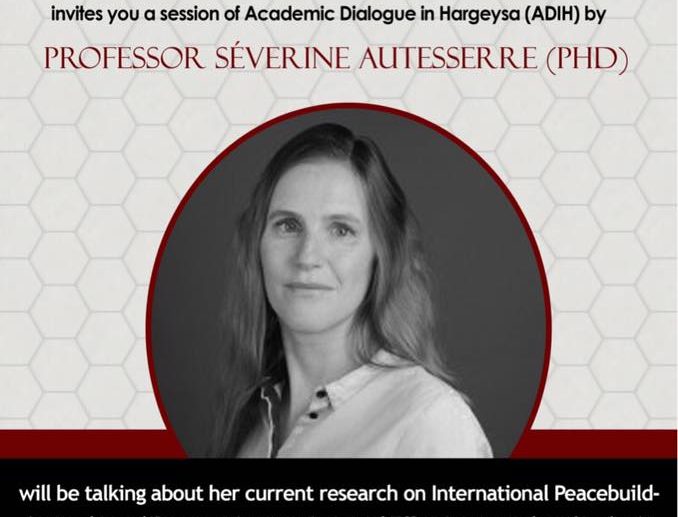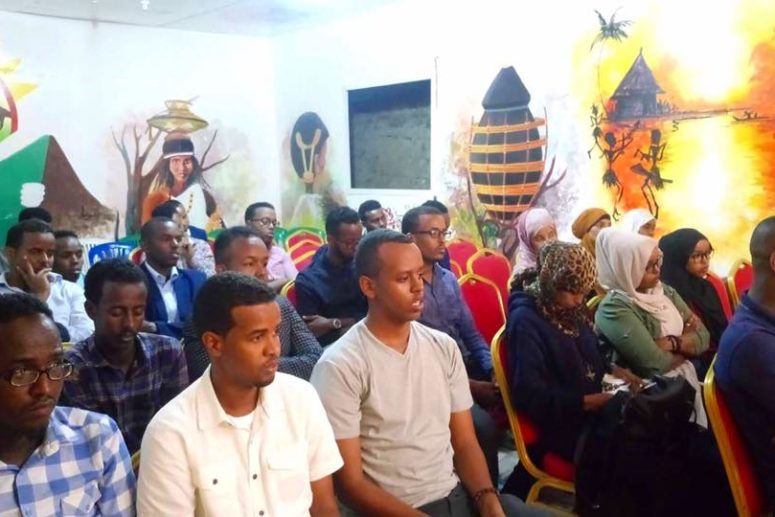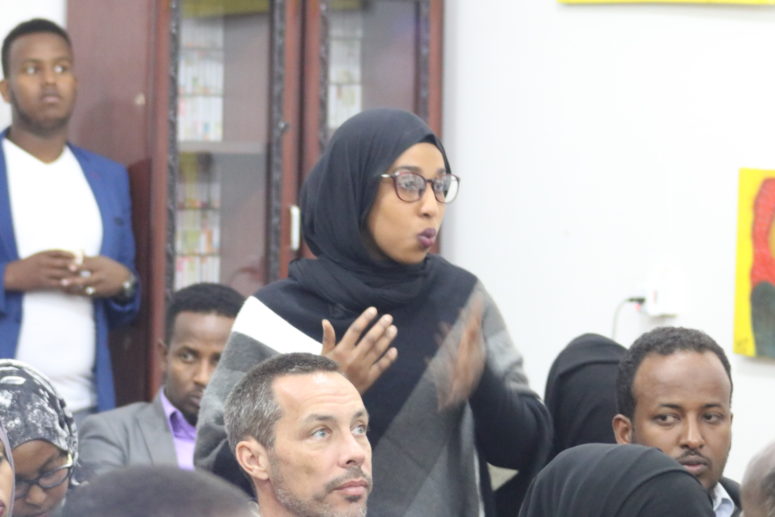International Peacebuilding and Local Success: Assumptions and Effectiveness.
Our second phase of Academic Dialog in Hargeysa series sessions started with Dr. Severine Autesserre who is an expert in war, peace, peacebuilding, peacekeeping, humanitarian aid, and African politics Who is a Professor of Political Science, specializing in international relations and African studies, at Barnard College, Columbia University (USA). Her presentation was on her new research she is working on International Peacebuilding and Local Success: Assumptions and Effectiveness.
Summery
Existing research on war and peace lacks analysis of what allows peacebuilding to succeed at the subnational level. Instead, most scholars focus on peacebuilding failure and macro-level dynamics. This is unfortunate because the obstacles to peacebuilding are such that the most puzzling question is why international efforts sometimes succeed, rather than why they fail. The lack of focus on success is also problematic because it results in ambiguous findings. On the one hand, there is an emerging consensus that local conflict resolution is crucial to building peace. There is also an agreement that, all else being equal, international support tends to increase the chances of successful peacebuilding. On the other hand, when international actors have tried to back local initiatives, they have often generated counterproductive consequences and worsened the situation. Should international actors support local peacebuilding processes? If so, how can they actually do this?
Drawing on in-depth interviews, field and participant observations in nine different conflict zones, and document analysis, this article takes the first step in explaining whether, how, why, and under what conditions international interveners (including donors, diplomats, peacekeepers, and the foreign staff of international and non-governmental organizations) can contribute to successful local and bottom-up peace efforts. It makes three central contributions. First, it shows that the policy and scholarly literatures suffer from a dearth of findings on successful international support to local conflict resolution. Second, it emphasizes the critical—and under-researched—role of assumptions in shaping peacebuilding initiatives. Third, it develops a theoretical framework to analyze how assumptions influence international peace efforts. By way of illustration, the article analyzes three widespread assumptions about peacebuilding and the role of peacebuilders. In each case, it challenges assumptions that international interveners take for granted but that are actually unfounded and detrimental, while identifying assumptions that promote peacebuilding effectiveness.
Her presentation was during the time of the international peace day celebration for which we have got a wider public attending her session. Questions, comments and appreciation was high. Young students from local universities had the chance to converse with this international award winning writer and made use of the stage to create a l



